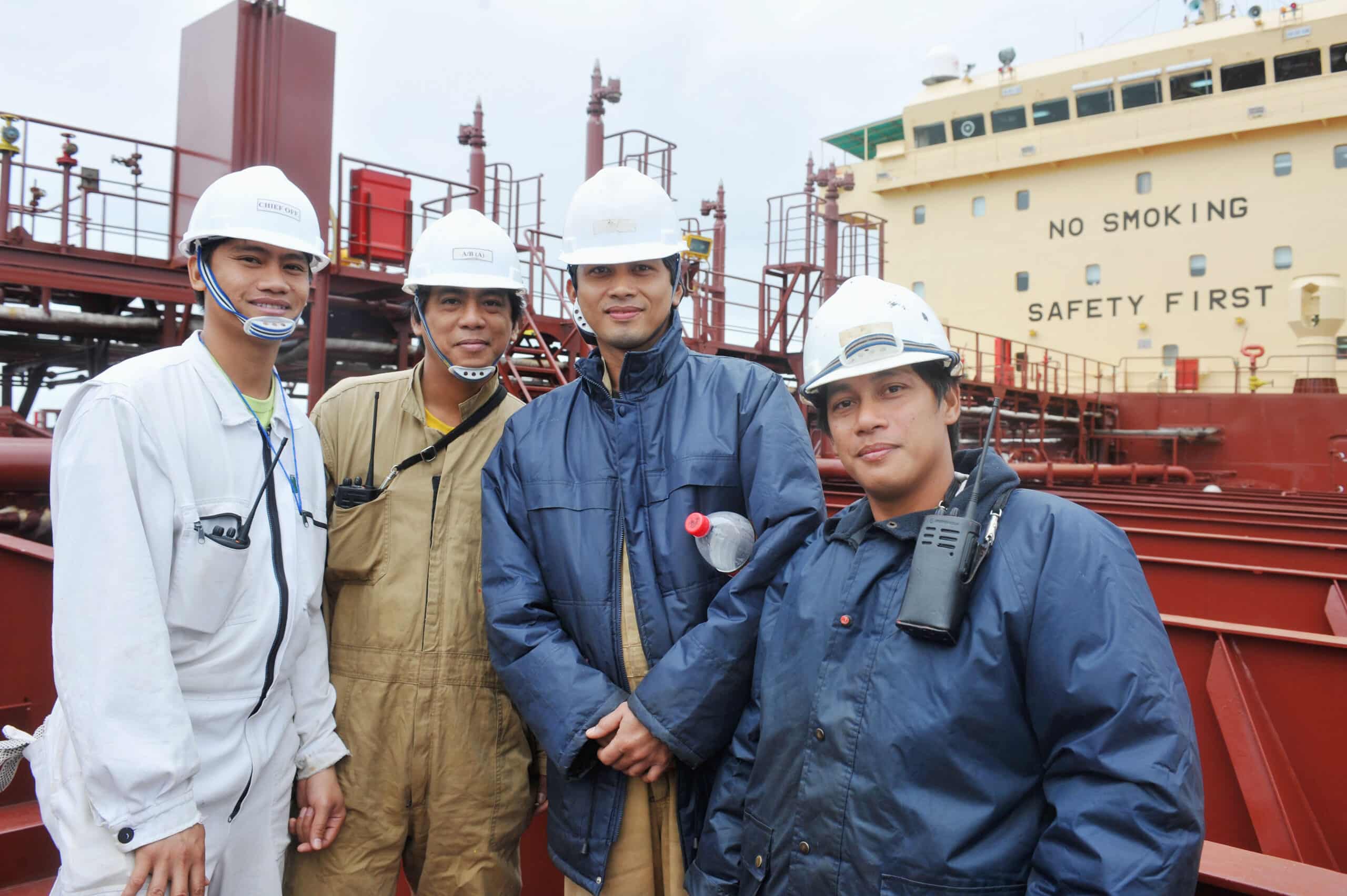
Seafarers on the “Kalimantan Palm” cargo ship from Singapore which transports palm oil. Photo courtesy of ILO
MANILA, Philippines — The European Union (EU) and the Philippines have vowed to improve Filipino seafarers’ training, education and working conditions through a technical assistance project.
In a joint statement on Monday, the EU and the Philippine government announced that the project will run from September 2024 to November 2027.
“The project will support the improvement of the training, certification, and well-being of Filipino seafarers so they can continue working abroad and under good labor conditions,” the joint statement read.
READ: PH seafarers get to keep jobs; EU cites ‘progress’
Among the Philippine institutions involved in this project are the Department of Transportation, Maritime Industry Authority (MARINA), Commission on Higher Education, the Philippine Coast Guard, and various maritime higher education institutions.
Transportation Secretary Jaime Bautista welcomed the EU’s assistance in enhancing Filipino seafarers’ education, training, and certification, as seafarers need to have internationally recognized certifications for seafarers to secure employment abroad.
According to Bautista, Filipino seafarers remain the preferred choice as crew members in the global shipping industry, emphasizing the importance of protecting the country’s seafarers.
“A law was recently signed – the Magna Carta of Filipino Seafarers – ensuring the protection and benefits of our highly-skilled mariners,” he said in a statement on Monday.
READ: Marcos signs Magna Carta of Filipino Seafarers into law
He further highlighted the maritime sector’s role as a key pillar of the Philippine economy, noting its significant contribution to the country’s Gross Domestic Product (GDP).
“In 2022, the industry directly accounted for 4 percent of the country’s GDP, with seafarers’ remittances adding another 1.7 percent,” Bautista explained.
Meanwhile, EU’s Director for Waterborne Transport Fotini Ioannidou said on Monday that the project highlights the strong partnership between Philippine authorities and the EU in enhancing the capabilities of maritime workers.
“The project will not only bring mutual benefits to both the Philippines and the EU but also contribute positively to the global shipping industry, recognizing Filipino seafarers as a cornerstone of the maritime workforce worldwide,” she said in a statement.
The technical assistance project will also include activities that benefit Indonesia and the broader Asean region, as part of the EU-Asean Sustainable Connectivity Package (SCOPE), according to the EU.
“With a total budget of 60 million euro, SCOPE addresses several shared connectivity priorities to strengthen economic and cultural ties between the EU and Asean,” the EU said.